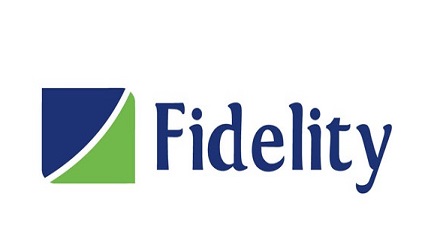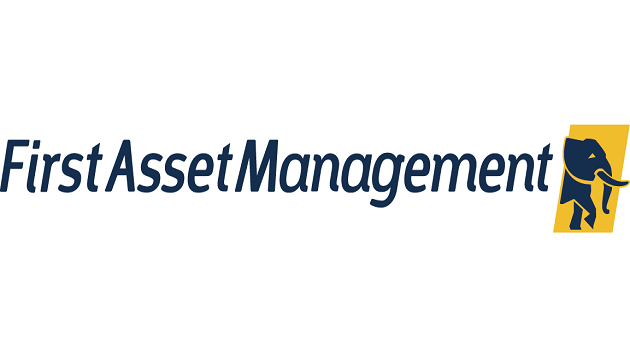E-Financial
Fidelity Bank MD Explains Why Banks don’t Give Long Term Loans

Mr. Nnamdi Okonkwo, managing director, Fidelity Bank Plc, has said that the inability of commercial banks to give long-term credit facilities is due to the non-availability of long-term-deposits by Nigerians.
Okonkwo made the remark at a conference organised by the Finance Correspondents Association of Nigeria (FICAN) in Lagos. The theme of the conference was: ‘’Nigeria beyond Oil, Financing Options for Non-Oil Exports’’.
He said that most depositors who had huge amounts to save, did it on short-term basis because of uncertainties of the economic policies.
Okonkwo wondered why banks were always condemned at every occasion for not lending long-term facilities to businessmen and farmers, whereas they traded mainly with short-term deposits.
The managing director insisted “that commercial banks do not have the kind of huge amount of money to lend out to those in businesses for long-term period’’.
The financial expert also listed lack of the right framework as being responsible for local banks not lending long-term to Small and Medium Scale Enterprises (SMEs).
He said lack of infrastructure, such as power, among others had made the bank to generate private electricity for its operations.
According to him, banks paid full interest on all deposits, while 25 per cent was taken as Cash Reserve Ratio (CRR), leaving banks with only 75 per cent of the amount to trade with.
He said, “If as a bank, I know a secret place where I can get long-term funds to trade with, I will be the number one bank in Nigeria today because I can lend long-term.
“Bring me a depositor that will place N100 million today with me at 10 per cent. “I will then give a loan at 15 per cent and pay the depositor’s interest on N100 million but I have to trade with N75 million because the Cash Reserve Ratio is deducted from the N100 million.
“For me to get access to five per cent of the money, I have to lend to a cocoa farmer. You have to lend for industrial production,’’ Okonkwo said.
The managing director said that banks paid three per cent as premium to Nigerian Deposit Insurance Corporation (NDIC) from all deposits.
“Not only that, the bank will also pay three per cent NDIC premium on the same N100 million deposit. “Remember, I run my own power. In fact if you put together the voltage we produce in 248 branches of Fidelity Bank, it can power the whole of Lagos State,’’ Okonkwo said.
He said that it was difficult to get a Nigerian who will deposit money in the bank for one year, yet, people kept blaming the banks for not lending money for long-term projects.
Okonkwo said that a lot of banks collapsed in the past because of assets mismatch. That is people who matched long-term assets with short-term funds.
“When there is a run in the system, the owners of the short-term funds will come for their money and you have to pay them. “If you pay them, the people you gave long-term loans cannot pay up.
Then you begin to have distress in the system, ‘’ he said. The financial expert, however, said that the Nigerian Export Import Bank (NEXIM Bank) and Fidelity Bank Plc were taking measures to enhance non-oil exports and create wealth for Nigerians.
The managing director said the lender was always at the forefront of financial services solutions and lending, adding that supporting SMEs should go beyond funding.
“This is what informed the Fidelity SME Radio Forum, a programme designed and sponsored by Fidelity Bank to educate, inform, advise and inspire budding entrepreneurs that is aired on Inspiration FM Lagos,” he said.
E-Financial
NIBSS, Others Flag 13,417 Nigerian Fraudsters on Person of Interest Portal

At least 13,417 individuals linked to fraudulent activities in Nigeria’s financial system have been captured on the Person of Interest Portal jointly developed by the Nigeria Inter Bank Settlement System (NIBSS) in collaboration with the Central Bank of Nigeria (CBN), security agencies and other stakeholders.

Premier Oiwoh, managing director of NIBSS, disclosed this while speaking on ongoing efforts to curb fraud in the payments ecosystem, noting that the portal which contains names and photographs of suspects has been actively used by law enforcement agencies since it began capturing data from 2019.
Oiwoh, while noting that fraud management remains a core responsibility of NIBSS, noted that the number of reported fraud cases has declined over the past five years, the value of losses remains a key concern for regulators and operators.
According to him, actual fraud losses stood at about N17.67 billion in 2023 before rising sharply to N52.26 billion in 2024, mainly due to a single incident involving N31.1 billion by one entity. He noted, however, that losses dropped significantly in 2025, reflecting tighter controls and improved collaboration across the industry.
He explained that Lagos continues to account for the highest concentration of fraud cases due to its position as the country’s commercial hub, while Abuja has also recorded a notable rise, with other states still featuring in reported incidents.
By transaction channel, Oiwoh said fraud is most prevalent in e-commerce and internet banking, followed by POS, mobile and web platforms.
He identified social engineering as the most common technique used by fraudsters, warning that insider abuse now poses the greatest threat to the system.
“Insider involvement is high, and recent investigations have confirmed this. Many of the fraud cases we are seeing today involve insiders, including former bankers,” he stated, noting that coordinated industry action has yielded results, and that joint efforts last year alone prevented losses of about N20 billion that could have been lost to fraud.
He raised concern over non-reporting of fraud incidents revealing that fraud reporting declined by about 34 per cent in the last quarter of 2025.
He warned that failure to report allows perpetrators to move freely between institutions undetected.
“In several cases investigated last year, individuals involved in fraud simply moved to other institutions because incidents were not reported. Non-reporting is unacceptable,” he said.
He said NIBSS, working with the CBN, the Nigerian Financial Intelligence Unit, and security agencies, has integrated centralised data systems, including industry watch lists, politically exposed persons databases, and customer account repositories, into the Person of Interest Portal to strengthen monitoring, identity management, and fraud prevention.
Credit… Leadership
E-Financial
CBN Prepares Fresh Debit Card Rules to Improve ATM Services

Central Bank of Nigeria (CBN) is to introduce new rules to improve how debit cards and Automated Teller Machines (ATMs) work in Nigeria, according to Olayemi Cardoso, governor of the apex bank.

Cardoso, made this known through Fatai Karim, his special adviser, at an event held over the weekend.
According to him, the new rules are meant to solve ongoing problems with cash withdrawals and to restore public trust in electronic payment systems.
The CBN explained that banks will now be required to issue debit cards based on the number of ATMs they have installed. This means a bank should not issue too many cards if it does not have enough ATMs to support them.
The policy is expected to reduce long queues at ATMs, frequent machine breakdowns, and uneven access to cash across the country.
The CBN noted that repeated ATM failures and cash shortages have made many Nigerians lose confidence in digital banking, even though electronic transactions are increasing.
The Governor said the new policy will soon be introduced to clean up the system and ensure banks properly balance the number of debit cards they issue with the ATMs they operate.
E-Financial
First Asset Management Receives Upgraded Ratings from Agusto &Co and DataPro

First Asset Management, a subsidiary of FirstHoldCo Plc has recorded a significant milestone as its rating was upgraded to ‘AA’ from ‘AA-’ by DataPro, reflecting the firm’s strong fundamentals and sustained resilience in Nigeria’s Asset management landscape.

The rating upgrade, issued in DataPro’s latest rating report, underscores First Asset Management’s diversified income base, high-quality investment portfolio, and experienced team, all of which continue to support the firm’s long-term stability, sound governance framework, and consistent performance.
The improved rating highlights the organisation’s ability to maintain strong operational fundamentals while effectively navigating market cycles. It further reflects First Asset Management’s disciplined investment philosophy, prudent risk management practices, and commitment to delivering value-driven solutions to its clients.
Speaking on the upgrade, Ike Onyia, Managing Director/CEO of First Asset Management, stated, “We are pleased with DataPro’s decision to upgrade our rating to ‘AA’. This recognition affirms the depth of our investment expertise, and the consistency of our governance and risk management processes. We remain focused on sustaining strong performance while delivering reliable investment outcomes for our clients.”
In a related development, Agusto & Co. has upgraded the rating of the First Asset Money Market Fund to ‘Aa-(f)’ from ‘A+(f)’, further reinforcing the strength of First Asset Management’s product offering.
According to Agusto & Co., the upgraded rating reflects the fund’s consistent low exposure to interest rates and liquidity risks, as well as the fund manager’s commendable professionalism and prudent investment approach. The rating affirms First Asset Money Market Fund’s position as a formidable investment vehicle for capital preservation and steady income generation.
First Asset Management continues to maintain a strong position within Nigeria’s asset management industry, supported by its disciplined investment framework, experienced investment professionals, and a growing suite of products designed to meet the evolving needs of retail and institutional investors.
DataPro and Agusto & Co. are both recognized leaders in ratings and investment research in Nigeria, with extensive experience providing independent assessments across multiple sectors. Their ratings are widely accepted as benchmarks for evaluating financial strength, risk management, and business sustainability.
First Asset Management is a leading Nigerian investment manager within the FirstHoldCo Group. The firm has evolved into a full service investment platform, offering integrated wealth and portfolio solutions across the Group.
First Asset Management manages diversified strategies spanning fixed income, equities, alternatives, passive and quantitative products, in multiple currencies for a variety of individual, intermediary and institutional clients.

 General News3 days ago
General News3 days agoPalmPay User Shares Experience on Fintech Apps to Trust in Nigeria

 News3 days ago
News3 days agoStakeholders Demand Stronger Governance and Infrastructure to Drive Tech Adoption @ Lagos AI Summit

 General News3 days ago
General News3 days agoNigerians Target Self-Improvement, Business Startups in 2026 Google Data

 News3 days ago
News3 days ago35 Million Nigerians Face Acute Hunger in 2026, UN Warns

 General News3 days ago
General News3 days agoHow Inside Jobs and Policy Shocks Trigger Nigeria’s Rising Loan Crisis

 News21 hours ago
News21 hours agoAnambra Cuts Monday Pay to Kill Sit-at-Home

 E-Financial21 hours ago
E-Financial21 hours agoFirst Asset Management Receives Upgraded Ratings from Agusto &Co and DataPro

 General News21 hours ago
General News21 hours agoNigeria Treats Religious Violence as Attack on State – NSA Ribadu













